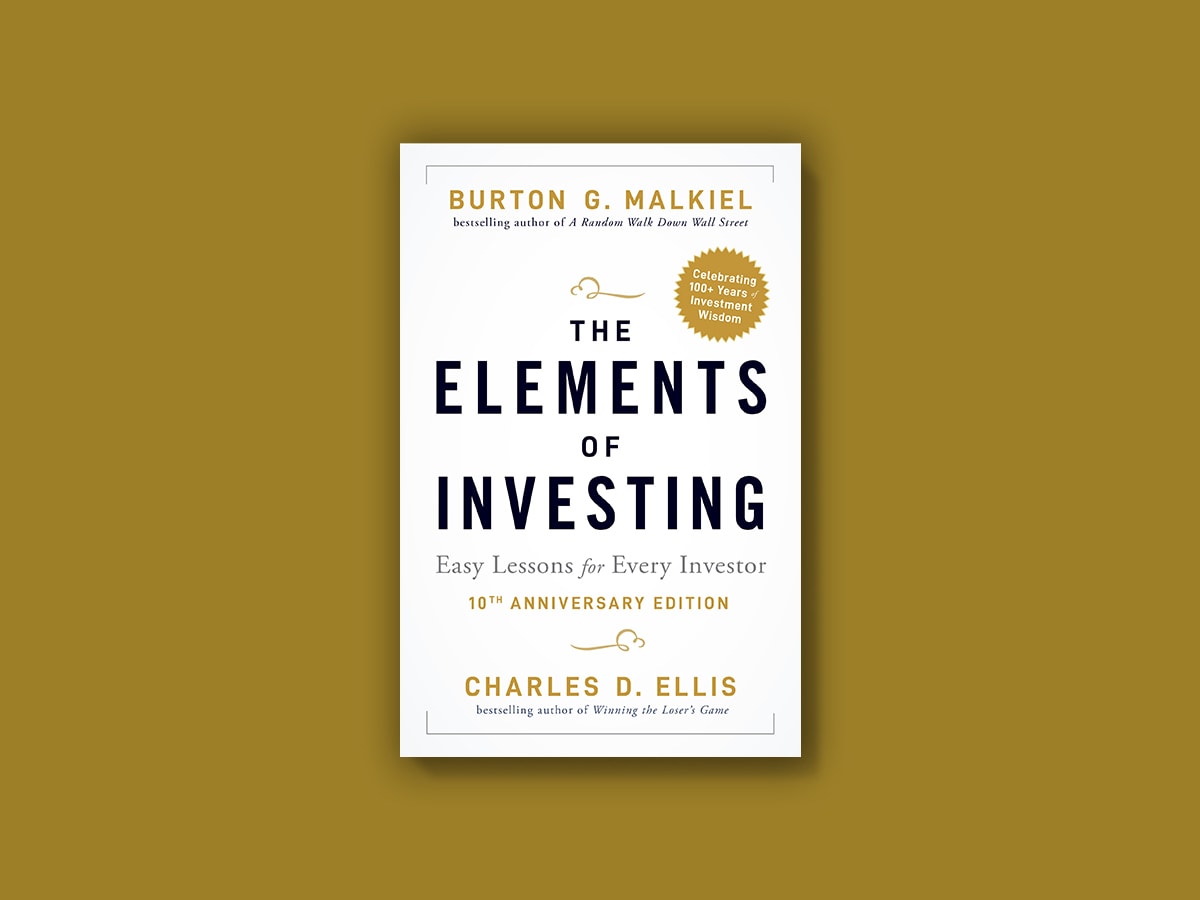Burton Gordon Malkiel, economist and renowned author of A Random Walk Down Wall Street, and Charles Ellis, an investment consultant who founded strategy consulting firm Greenwich Associates, are both esteemed market experts who share the opinion that “successful investing should not be a province of a select few”. In fact both agree that, when it comes to investing, the simplest approach is often the toughest to beat.
After a dinner in Princeton with friends, Ellis broached the idea of writing a book that distilled all their wisdom and experience into a saving and investment plan. Indeed, the two agreed on “almost everything in investing,” leading to the publication of The Elements of Investing in 2009.
To celebrate the 10th anniversary of this permanent fixture in investment literature, Malkiel and Ellis provide readers with a helpful, updated companion to join any investing journey, published by Wiley in September 2020. In this revised edition, the authors reaffirm their views expressed in earlier editions and provide new supporting evidence.
The following is an excerpt from the book’s first chapter on the importance of saving. For Ellis, there are many ways to save. “The key, of course, is to see saving as a winning experience rather than as a deprivation,” he adds.
It all starts with saving
This is a short, straight-talk book about investing. Our goal is to enhance your financial security by helping you make better investment decisions and putting you on a path toward a lifetime of financial success and, particularly, a comfortable and secure retirement.
Don't let anyone tell you that investing is too complex for regular people. We want to show you that everybody can make sound financial decisions. But it doesn't matter whether you make a return of 2%, 5%, or even 10% on your investments if you have nothing or too little to invest.
So it all starts with saving.
Save
Save. The amount of capital you start with is not nearly as important as organizing your life to save regularly and to start as early as possible. As the sign in one bank read:
Little by little you can safely stock up a small reserve here, but not until you start.
The fast way to affluence is simple: Reduce your expenses well below your income — and Shazam! — you are affluent because your income exceeds your outgo. You have “more” — more than enough.
It makes no difference whether you are a recent college graduate or a multimillionaire. We've all heard stories of the schoolteacher who lived modestly, enjoyed life, and left an estate worth over $1 million — real affluence after a life of careful spending. And we know one important truth: She was a saver.
But it can also go the other way. A man with an annual income of more than $10 million — true story — kept running out of money, so he kept going back to the trustees of his family's huge trusts for more. Why? Because he had such an expensive lifestyle — private plane, several large homes, frequent purchases of paintings, lavish entertaining, and on and on. And this man was miserably unhappy.
In David Copperfield, Charles Dickens'scharacter Wilkins Micawber pronounced a now-famous law:
Annual income twenty pounds, annual expenditure nineteen pounds nineteen and six, result happiness. Annual income twenty pounds, annual expenditure twenty pounds ought and six, result misery.
Saving is good for us — for two reasons. One reason for saving is to prevent having serious regrets later on. As the poet John Greenleaf Whittier wrote: “Of all sad words of tongue and pen, the saddest are ‘It might have been.’” “I should have” and “I wish I had” are two more of history's saddest sentences.
Another reason for saving is quite positive: Most of us enjoy the extra comfort and the feeling of accomplishment that comes with both the process of saving and with the results — having more freedom of choice both now and in the future. Sensible saving is a lot like maintaining good health. Bolster the process of saving through good habits and the results can generate positive feelings.
No regrets in the future is important, or will be, to all of us. No regrets in the present is important, too. Being a sensible saver is good for you, but deprivation is not. So don't try to save too much. You're looking for ways to save that you can use over and over again by making these new ways your new good habits.
The real purpose of saving is to empower you to keep your priorities — not to make you sacrifice. Your goal in saving is not to “squeeze orange juice from a turnip” or to make you feel deprived. Not at all! Your goal is to enable you to feel better and better about your life and the way you are living it by making your own best-for-you choices about when to spend.
Savings can give you an opportunity to take advantage of attractive future spending opportunities that are important to you. Saving also puts you on the road to a secure retirement, buying a new home, or sending your children to college. Think of saving as a way to get you more of what you really want, need, and enjoy. Let saving be your helpful friend.
Continue reading for FREE
- Includes free newsletter updates, unsubscribe anytime. Privacy policy


